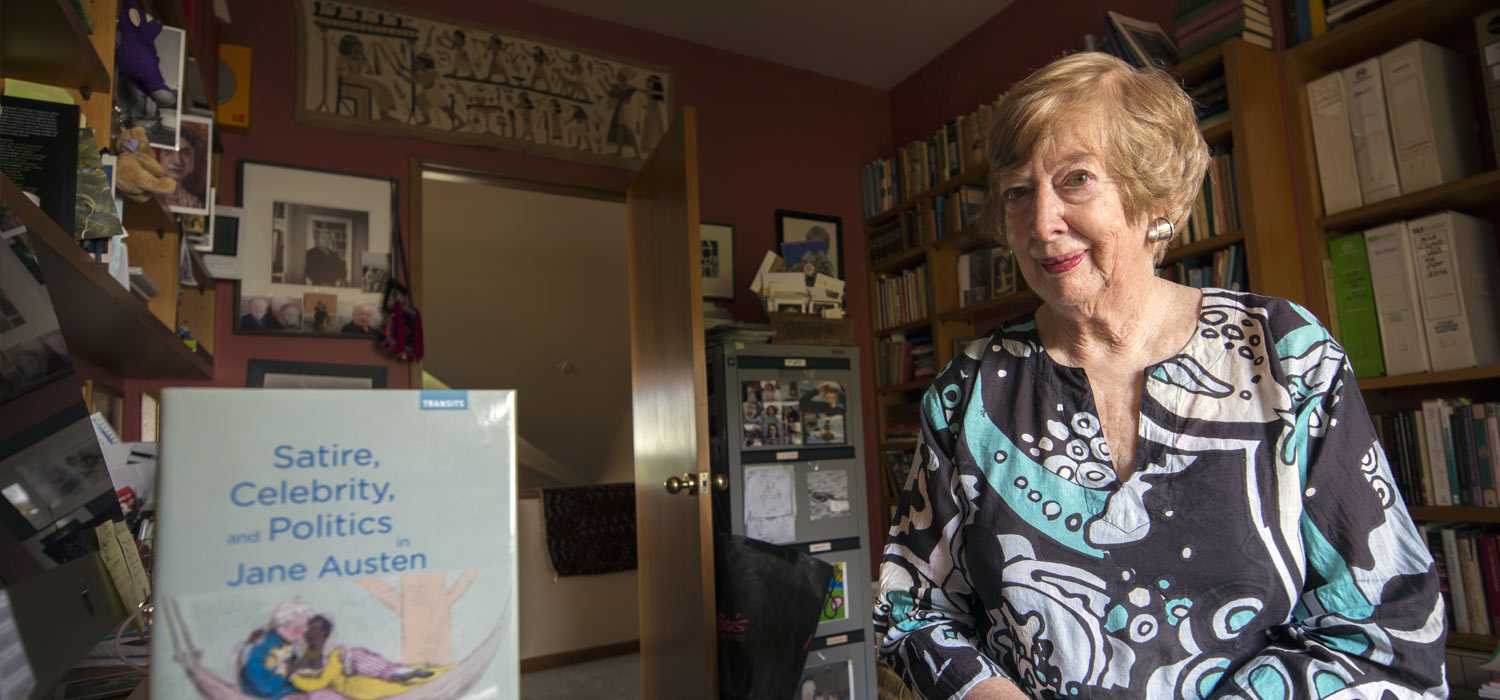
Austen the satirist
Jane Austen: gentle ironist or courageous political satirist? In her recently published book, Professor Emerita Jocelyn Harris (CNZM) concludes the latter.
Harris has dedicated much of her career to Austen's life and works, and describes her as “quite simply inexhaustible”.
Satire, Celebrity and Politics in Jane Austen (Bucknell University Press) examines Austen's work through the newspapers she perused, gossip she heard, streets she walked and the sights she saw – made possible through accessible online resources.
“With the help of the internet I realised that Austen probably based Elizabeth and Jane Bennet [Pride and Prejudice] on two royal mistresses of the time – celebrity actress Dorothy Jordan and Mrs Georgina Quentin.
“This was a time when the cult of personality was in its infancy and Austen targeted celebrities up to and including the Prince of Wales. She was a patriot, never more than one degree of separation away from royalty. She believed the prince was endangering the nation so she attacked him in the only way she could: through her characters – such as the unlovely John Thorpe in Northanger Abbey – and her plots.
“She criticised him for his appearance, his lewdness, his vanity, his instability, his outrageous spending, his desire for absolute power and his braggadocio.”
Harris says Austen's in-jokes about public figures demonstrate her worldliness, a fascination with fame and enjoyment of rumour: snippets of Fanny Burney's correspondence about life at court reappear in Austen's novels.
“The current resurgence of political satire in social media, newspapers and cartoons would have delighted this savvy, progressive and thoroughly modern woman.”